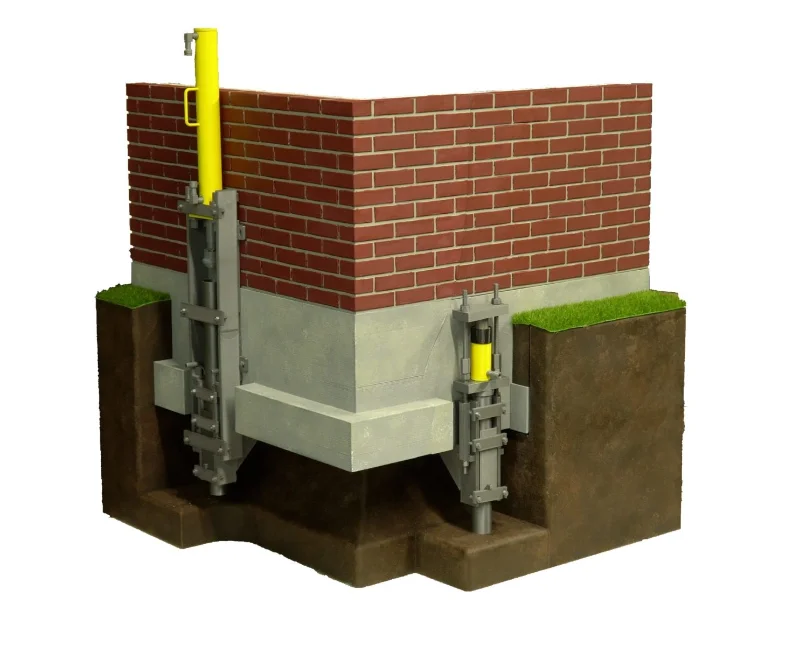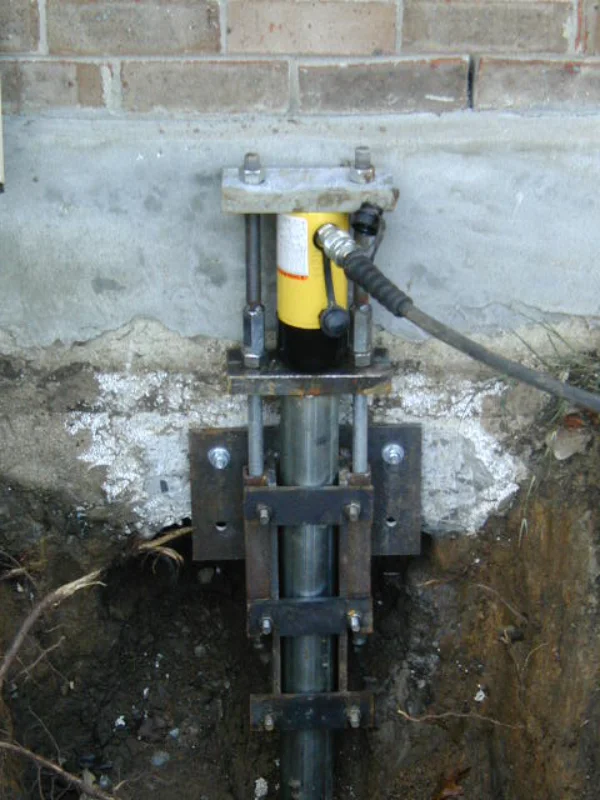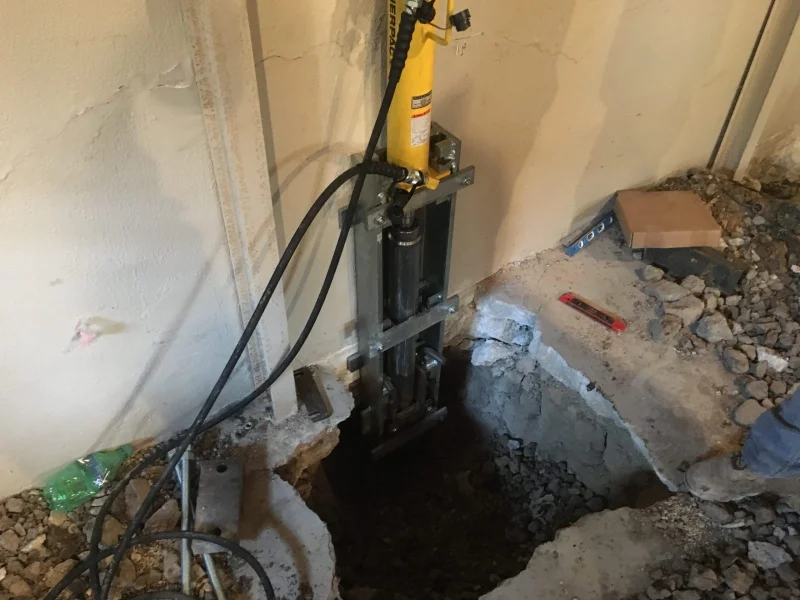Recognizing Foundation Failure: Key Signs Every Homeowner Should Know
Is Your Home’s Foundation in Trouble? Here’s How to Tell!
Your foundation is the backbone of your home. It keeps everything level, stable, and structurally sound. But when foundation issues start creeping in, they don’t always make a grand entrance. Instead, they whisper warnings—small cracks, doors that stick, or floors that suddenly seem uneven. Ignore them, and those whispers could turn into costly structural nightmares.
The good news? Catching foundation trouble early can save you time, stress, and thousands of dollars in repairs. Here’s what every homeowner needs to know to spot trouble before it escalates.
Why Do Foundations Fail?
Your foundation relies on the soil beneath it for support. When that soil shifts, expands, or weakens, your home’s stability is at risk. Here’s what can cause foundation problems:
- Soil Shrinkage & Expansion – Dry spells cause soil to contract and pull away from your foundation. Heavy rains make it expand and shift, destabilizing your home.
- Poor Drainage – Water pooling around your foundation slowly erodes the soil, leading to settlement and cracks.
- Improper Soil Compaction – If builders didn’t prepare the ground correctly before construction, the soil may settle unevenly over time, creating foundation stress.
- Tree Roots – Large trees near your home suck moisture from the soil, causing parts of your foundation to sink unevenly.
Warning Signs Your Foundation May Be Failing
Foundation problems don’t appear overnight. The sooner you recognize the signs, the better your chances of preventing major structural damage. Look for these red flags:
Inside Your Home:
✅ Cracks appearing in corners of walls or drywall, especially around windows, doors, or ceilings.
✅ Sticking doors and windows that no longer open or close smoothly.
✅ Floors that slope, warp, or develop cracks.
✅ Gaps forming between walls, ceilings, or floors.
Outside Your Home:
✅ Noticeable cracks in your foundation, brickwork, or exterior walls.
✅ Walls that appear to be shifting, bowing, or leaning.
✅ A chimney that looks like it’s tilting or separating from the house.
✅ Gaps forming around doors, windows, or garage entrances.
Fixing Foundation Problems: Your Best Repair Options
If you’ve spotted any of these warning signs, don’t wait! Foundation issues never fix themselves. The good news is that modern foundation repair solutions from Earth Contact Products (ECP) can restore stability and prevent further damage.
Proven Foundation Repair Solutions:
Steel Push Piers: Provide deep foundation support by anchoring into stable soil layers.
- Helical Piers:Perfect for homes built on shifting soils, offering long-lasting stabilization.
- Carbon Fiber Reinforcement: Strengthens basement walls against soil pressure and prevents future cracking.
- Bowing Wall Laminate and Fabric: Reinforces and stabilizes walls to prevent further structural weakening.
Act Now to Protect Your Home
Your home is one of your biggest investments, don’t let foundation issues put it at risk. Idaho Concrete Lifting is a team of trusted professionals who offer free inspections and expert solutions tailored to your needs.
Call Idaho Concrete Lifting for a free estimate and ensure your home stays safe and sound!
FAQs
- What are the most common warning signs of foundation failure in a home?
Look for interior signs like drywall cracks in corners, sticking doors or windows, sloping or cracked floors, and gaps between walls and ceilings. On the exterior, watch for foundation cracks, leaning chimneys, and shifting or bowing walls.
- What causes residential foundation problems in Idaho and Oregon?
Soil movement is the most common cause—this includes shrinkage during dry periods and expansion after heavy rain. Poor drainage, tree root intrusion, and improperly compacted soil at the time of construction can also lead to foundation stress and settling.
- How serious are foundation cracks or bowing walls?
These are strong indicators of underlying structural problems. Left unaddressed, they can lead to significant damage, water intrusion, and costly repairs. It’s important to have a certified foundation repair expert assess the situation early.
- What foundation repair methods does Idaho Concrete Lifting use?
We use industry-proven solutions like steel push piers, helical piers, carbon fiber reinforcement, and wall stabilization systems (including bowing wall laminates and fabric) to restore structural integrity and prevent further damage.
- When should I schedule a foundation inspection?
If you’ve noticed any signs of settling, cracking, or structural shifting, don’t wait. Early detection allows for more affordable and less invasive repairs. Contact Idaho Concrete Lifting at (208) 912-0027 for a free expert inspection.


